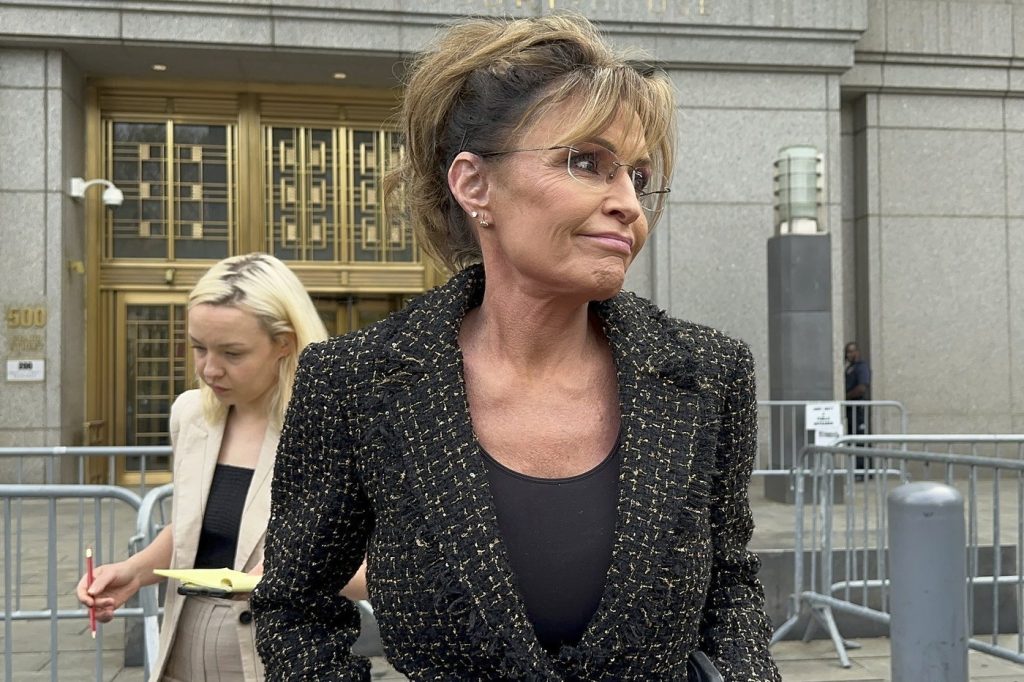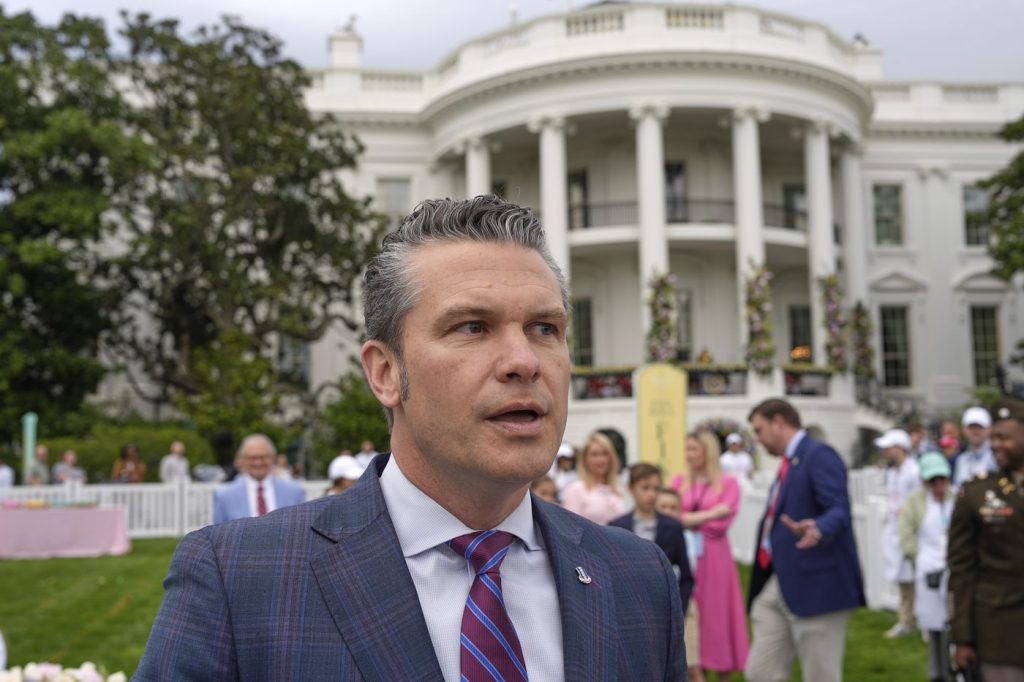NEW YORK (AP) - A jury has ruled that The New York Times did not libel former Alaska Governor Sarah Palin in relation to a 2017 editorial that she claimed harmed her reputation. The jury's deliberation lasted just over two hours before arriving at its verdict. This decision follows an earlier ruling in 2022 by a different jury and judge, which similarly concluded that Palin's defamation claims were unfounded. However, her lawsuit was reinstated by an appeals court, leading to the latest trial.
After the verdict, Palin appeared composed while leaving the courthouse. She told reporters, "I get to go home to a beautiful family of five kids and grandkids and a beautiful property and get on with life. And that's nice." Following her departure, Palin took to the social media platform X, expressing her intention to continue urging the press to stop fabricating stories.
In a statement, Danielle Rhoades Ha, a spokesperson for The New York Times, characterized the verdict as a reaffirmation of a significant principle in American law, noting that publishers are not held liable for honest mistakes. Palin initially filed her lawsuit in 2017, seeking unspecified damages a decade after she gained national prominence as the Republican vice-presidential nominee.
The controversy arose from a Times editorial discussing gun control, published shortly after an attack on U.S. Representative Steve Scalise by an individual with a history of anti-Republican sentiments. The editorial inaccurately suggested a connection between political rhetoric and a 2011 shooting incident in Arizona that seriously injured former U.S. Representative Gabby Giffords and resulted in the deaths of six other individuals. Specifically, it implicated Palin's political action committee for creating a violent political atmosphere by circulating a map featuring crosshairs over Giffords and 19 other Democrats.
Less than 14 hours after the editorial was published, The New York Times issued a correction, admitting to the error in linking political rhetoric to the Arizona shooting and misrepresenting the map involved. During the trial, former editorial page editor James Bennet expressed remorse for the error, tearfully apologizing to Palin and stating that he felt tormented by the mistake and took immediate steps to rectify it upon receiving complaints.
Palin testified that the publication of the editorial resulted in an increase in death threats against her and had a detrimental effect on her emotional well-being. Her attorney, Kenneth Turkel, argued in his closing remarks that the jury should find the Times liable for defamation, asserting that Bennet either knowingly published false information or acted with "reckless disregard" toward the truth. He called for the jury to award compensatory damages for the damage inflicted on her reputation and mental suffering, urging them to deliver a judgment that would provide Palin with a sense of closure.
Conversely, Felicia Ellsworth, an attorney representing The New York Times, contended that there was no evidence to support that anything other than an honest mistake had occurred. She emphasized the swift and clear actions taken by Bennet and the Times to correct the record once the error was identified. Ellsworth also pointed out that several Times editors consistently testified regarding their dedication to accuracy while asserting that Palin's claims were largely unsupported, relying primarily on her own assertions.
In February 2022, Judge Jed S. Rakoff had previously dismissed Palin's claims while jurors were deliberating. He allowed the jury to deliver a verdict that also favored the Times. However, the 2nd U.S. Circuit Court of Appeals in Manhattan later reinstated the case, stating that Rakoff's dismissal improperly interfered with the jury’s responsibilities and cited several flaws in the trial, including erroneous evidentiary exclusions and inaccurate jury instructions.
After the verdict, Turkel stated that the legal team would consider whether to pursue another appeal. Lyrissa Lidsky, a constitutional law professor at the University of Florida, acknowledged that the verdict was uncertain given the current distrust in the media, but noted that Palin succeeded in raising public awareness of the newspaper's mistake through her lawsuit.












